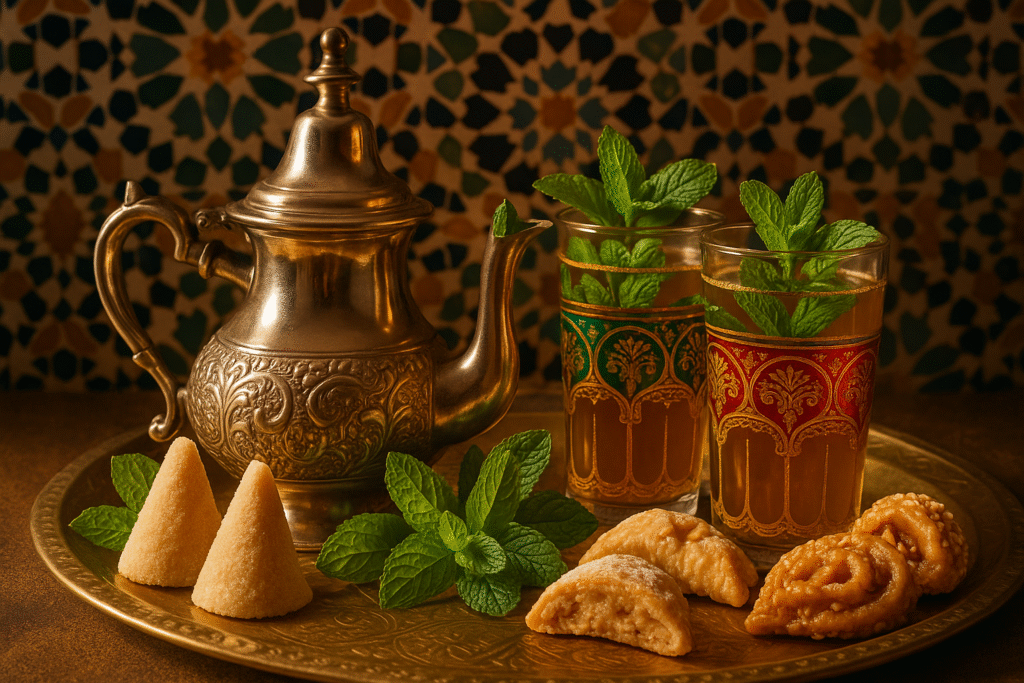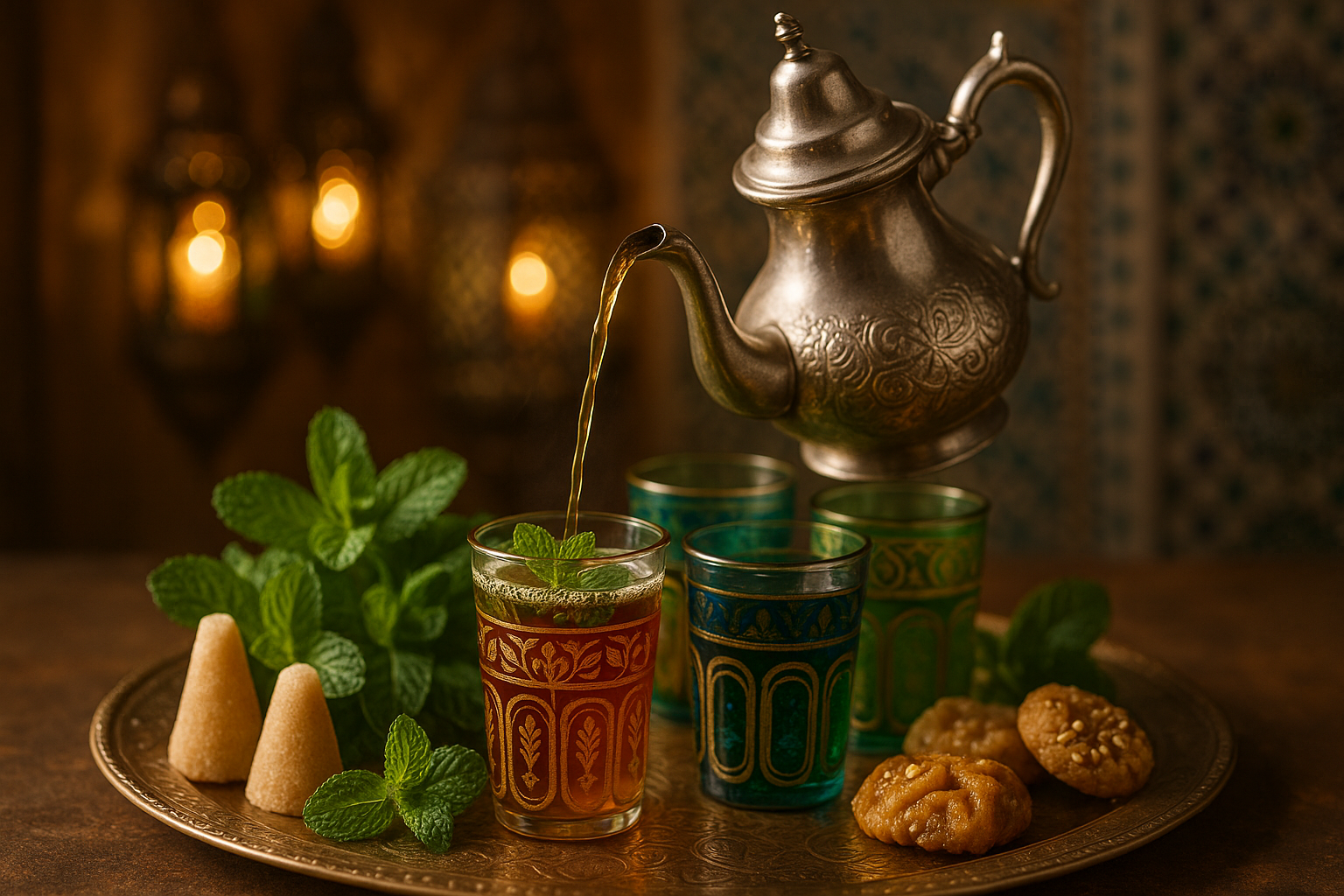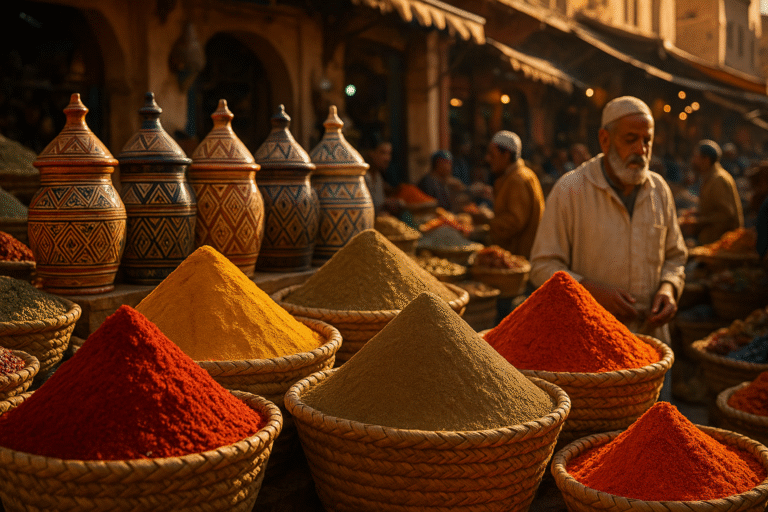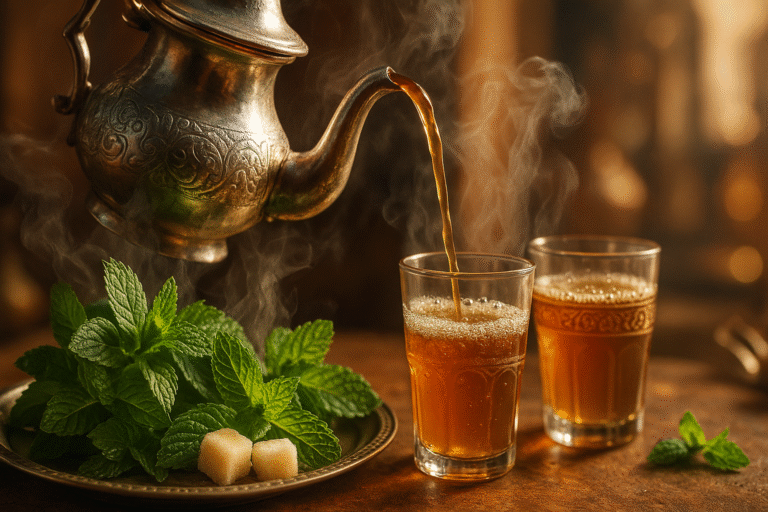Moroccan Tea: An Incredible Tradition and Cultural Icon
Morocco is a land of bright colors, fragrant spices, and rich traditions. At the heart of this culture is Moroccan tea, known as Atay. More than just a drink, Moroccan tea is a symbol of hospitality, friendship, and national pride.
When you walk through the busy markets of Marrakech, vendors might offer you a glass of hot, sweet mint tea. You can also relax in a riad courtyard or visit a friend.
In this guide, we will look at the history, preparation, cultural importance, and health benefits of Moroccan tea. We will also share tips for making it at home.
1. The Role of Tea in Moroccan Hospitality
In Morocco, tea is a social glue. People serve it at family gatherings, business meetings, celebrations, and even casual conversations between neighbors. The process of making tea is almost ceremonial:
- The host prepares the tea in front of guests as a gesture of transparency and trust.
- When someone lifts the teapot high while pouring, they create a thin stream that aerates the tea and forms a light froth on top.
- People serve tea in small, decorated glasses, not mugs. They often serve it with traditional pastries like chebakia or ghriba.
This ritual embodies Moroccan values: generosity, community, and attention to detail.

2. Ingredients of Authentic Moroccan Tea
The beauty of Moroccan tea lies in its simplicity. Here’s what you’ll need for an authentic brew:
- Chinese Gunpowder Green Tea – The base tea, known for its strong, slightly smoky flavor.
- Fresh Spearmint Leaves – Often called nana in Morocco, these give the tea its refreshing aroma.
- Sugar – Moroccan tea is famously sweet. People often use large sugar cones called qand.
- Water – Fresh and clean, ideally filtered.
Optional: Some regions add herbs like sage, verbena, or wormwood for medicinal purposes or seasonal variation.
Learn more about the magical world of Moroccan spices
3. How to Make Moroccan Mint Tea at Home
If you’ve ever sipped Moroccan tea in a riad or desert camp, you know how special it is. The good news? You can recreate it at home.
Ingredients (for 4 servings):
- 1 tablespoon Chinese gunpowder green tea
- 1 large handful fresh mint leaves
- 3–4 tablespoons sugar (or to taste)
- 1 liter water
Instructions:
- Rinse the Tea
Place the green tea in a teapot. Pour in about 100 ml of boiling water, swirl for a few seconds, and discard this first infusion. This removes bitterness and dust from the tea.
- Brew the Base
Pour 1 liter of boiling water into the teapot containing the rinsed tea leaves. Let it steep for 2–3 minutes.
- Add Mint and Sugar
Place the mint leaves and sugar into the teapot. Stir gently or pour the tea into a glass and back into the pot several times to mix.
- Pour from a Height
Hold the teapot high above the glasses as you pour. This helps oxygenate the tea and create a signature light foam on the surface.
- Taste and Adjust
If needed, add more sugar or mint. Serve hot in small glasses.
4. Health Benefits of Moroccan Tea
Moroccan tea is more than just delicious — it offers several health benefits:
- Rich in Antioxidants
Green tea contains polyphenols that fight free radicals, helping reduce the risk of chronic diseases.
- Aids Digestion
Mint is known for soothing the stomach, making Moroccan tea a perfect after-meal drink.
- Boosts Hydration
Despite being hot, tea can be surprisingly refreshing in warm climates.
- Promotes Relaxation
The aroma of fresh mint helps calm the mind and reduce stress.
Conclusion
Moroccan tea is a bridge between past and present, a drink that embodies hospitality, culture, and flavor. You can enjoy it in a sunny courtyard in Marrakech or in your own kitchen. Each glass tells a story. It represents tradition, warmth, and community.
When you learn to make Moroccan tea, you are not just making a drink. You are also embracing a part of Moroccan culture.



